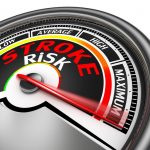http://www.belmarrahealth.com/stroke-recovery-common-problems-healthy-lifestyle-changes-stroke/
A stroke affects each patient differently. Some may develop vision problems, others speech impairment. Stroke recovery involves not just medications, but lifestyle changes, too, to prevent another stroke and improve overall well-being.
The goal of stroke recovery and rehabilitation is ensuring that you can go back to living as normal of a life as possible. This means getting back to work or taking care of yourself.
Aspects of stroke recovery involve relearning old skills or even adopting new skills depending on the changes that may have occurred after the stroke.
Stroke rehabilitation to improve your quality of life after stroke
Stroke rehabilitation involves a number of approaches to improve a person’s quality of life. These include:Strengthening motor skills: Exercises to improve muscle strength and coordination. This may also include improving the ability to swallow.
Mobility training: Using walking aids to help stabilize and support the body while you learn how to walk again.
Constraint-induced therapy: Restricting use of an unaffected limb so you can work on the affected limb to build it back up again.
Range-of-motion therapy: Exercises to lessen muscle tension and regain range of motion. Medications may help with this.
Functional electrical stimulation: Electricity stimulation is used on weaker muscles causing them to contract.
Robotic technology: Robotic devices assist impaired limbs in performing repetitive movements.
Wireless technology: Wearing an activity monitor to help evaluate post-stroke improvement.
Virtual reality: Using video games or computer-based therapies to help simulate real-life scenarios.
Noninvasive brain stimulation: Transcranial magnetic stimulation (TMS) to help improve motor skills.
Therapy for communicative disorders: Speaking, reading, writing, listening, and comprehension-based therapies to improve communication skills.
Psychological evaluation and treatment: Testing cognitive skills and emotional adjustment after stroke.
Medications: May be used to treat depression or drugs to improve movement.
Stroke rehabilitation can take place in an inpatient rehabilitation center, outpatient units, skilled nursing facilities, or at home where a specialist or therapist comes to you and performs the recommended therapy or rehabilitation technique.
Stroke rehabilitation may involve doctors, nurses, physical therapists, occupational therapists, speech and language pathologists, dieticians, social workers, psychologists, therapeutic recreation specialists, and vocational counselors. As you can see, it can take a large team to help support stroke rehabilitation and stroke recovery.
Lifestyle changes and healthy living after stroke
 Making
the appropriate lifestyle changes is important for improving overall
health post-stroke in order to reduce the risk of another stroke and
other complications related to stroke or a weak heart. Lifestyle changes
and healthy habits to implement after a stroke include:
Making
the appropriate lifestyle changes is important for improving overall
health post-stroke in order to reduce the risk of another stroke and
other complications related to stroke or a weak heart. Lifestyle changes
and healthy habits to implement after a stroke include:- Building or working on personal and close relationships
- Reducing stress
- Managing finances
- Eating a healthy and proper diet
- Exercising regularly
- Not smoking
- Minimizing or eliminating alcohol from your diet
- Maintaining and keeping a healthy weight
- Monitoring and controlling other conditions such as blood pressure, cholesterol, and diabetes
Sources:
http://www.stroke.org/we-can-help/survivors/stroke-recovery
http://www.mayoclinic.org/diseases-conditions/stroke/in-depth/stroke-rehabilitation/art-20045172
http://www.mayoclinic.org/diseases-conditions/stroke/in-depth/stroke-rehabilitation/art-20045172?pg=2
http://www.stroke.org/we-can-help/survivors/stroke-recovery/lifestyle
https://strokefoundation.com.au/about-stroke/preventing-stroke/stroke-risk-factors/tips-to-change-your-lifestyle
No comments:
Post a Comment